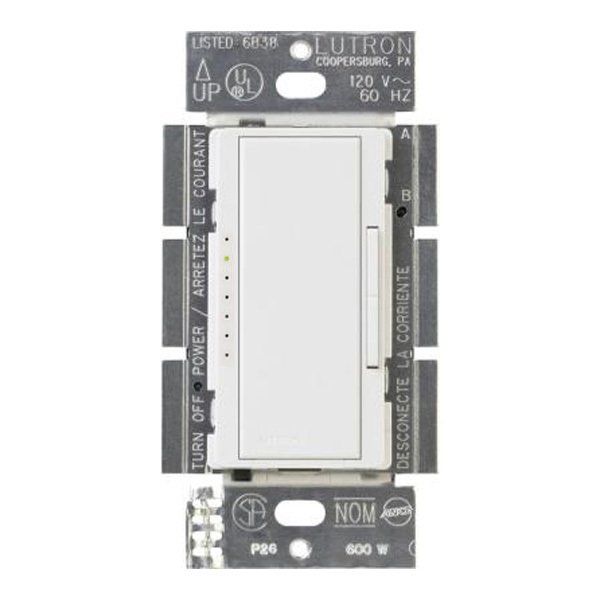Ban the Buzz From LEDs
What’s that sound? Bzzzz. Bzzzz. We’ve all heard it. Is it coming from the light fixture? The light bulbs? Why yes, I think it is!
Don’t get frazzled by the buzz. While all lightbulbs can make that distracting sound, especially when dimmed, it’s more common when using LED lightbulbs. That humming or buzzing sound in LED bulbs generally indicates that the lights are using a frequency of 120 hertz, a voltage level that can cause the components in the bulb to vibrate or oscillate. If the sound is a higher-pitched whistling or beeping noise, it may be generated by the switching power supply, which switches frequency in the kilohertz range. While the buzzing can be annoying, it generally doesn’t affect the lifespan of your LED light. It can also sometimes mean that the LED bulb is nearing the end of its life or even that its defective. Still, there are some other things to check before you replace.
The buzzing sound from your LED light bulbs may be the result of electromagnetic interference from a nearby appliance such as a microwave oven. If the sound only happens while the microwave is in use, there’s unfortunately not a lot you can do about it. But if the sound occurs when the light is hooked up to a dimmer, make sure you are using the right dimmer. Not all dimmable LED bulbs are compatible with all LED dimmer switches. To ensure that your bulbs and dimmer controls are compatible, check the lamp's manufacturer spec sheet or dimmer compatibility sheet, available on the product pages of 1000Bulbs.com. Using the proper dimmer can not only ban the buzz, but it can also extend the life of your LED bulbs. Keep in mind that specific dimmer compatibility information will always be with the bulbs rather than with the dimmer.
If you’re using LEDs that have a separate driver, the buzz could be happening because of an incorrect driver. Make sure you have the right driver for your LED and replace it if it isn’t compatible. Also, consider replacing the driver if it’s been a while.
Consistency is best in fixtures with multiple LED bulbs, so use the same brand and wattage in each fitting—and don’t mix LEDs with incandescent bulbs. Check the total wattage requirement for the fixture to be sure you’re not exceeding the maximum range for the circuit.
Loose screws or bulbs in fixtures can also cause a myriad of noises. Fortunately, those are easy fixes; just check the supports on the fixture and the bulb’s security in the socket. Tighten everything down and you could be resting soundly!
There’s one—slightly more dangerous—reason that your LED bulbs might buzz. There may be an electrical short in the line. If you think that might be the problem, enlist the help of a professional electrician.
Innovations are happening all the time in LED technology. Newer, high-performance bulbs are designed for quieter operation, higher efficiency, and improved light rendering. If your LEDs are more than a few years old, check out what’s new, including products by Cree and Sylvania.
Buzzed by Incandescents or Fluorescents?
If it’s your incandescent bulbs that are buzzing, check the maximum wattage capacity of the fixture. If you’re over the top, the bulbs may be overheating, causing the buzz. Switch to lower-wattage bulbs or upgrade to a dimmer with a higher-wattage rating.
In fluorescent bulbs, a bad bulb or starter can cause the buzz. If replacing those doesn’t quiet things down, consider replacing the ballast. Old-school magnetic ballasts or ballasts with noise ratings other than class-A are likely to be noisier than newer ones. Replacing your magnetic ballast with an electrical one will keep the annoying sounds to a minimum.
Keep the home lights burning but give your ears a break from the buzz!
If you have further questions, contact one of our experts at 1-800-624-4488, and they'll be happy to assist you.










